Finish this song lyric: “We gotta get out while we’re young, ’cause tramps like us, baby…” If you know the answer is “we were born to run,” congratulations! You know a bit of music trivia that stumped three Jeopardy! contestants on February 5, 1998, during the Tournament of Champions. Among the trio of champions woefully unfamiliar with the Boss was Arthur Phillips. He was a speechwriter at the time, but later became a bestselling author with his 2002 debut Prague.
Phillips noted “my time on Jeopardy! is a feature of my life that almost everyone I meet is fascinated by. I’m an author now and people at readings and interviews almost invariably ask about Jeopardy!” I’m not surprised. Is there a more broadly recognizable accomplishment proving someone is smart than an appearance on Jeopardy!? A Nobel Prize, perhaps.
But isn’t Jeopardy! also a way for us average schmoes to gain a little smug superiority, when we hold that nugget of knowledge that eludes the contestants? Never mind the pressures of the cameras, lights, buzzers, and Alex Trebeck’s knowing visage. From the comfort of our couches, we occasionally think we might actually be as smart as these folks on television. The awe and the scorn, both parts of the appeal.
What Draws Authors to Jeopardy!
Authors make great Jeopardy! contestants, and I’m not saying that out of personal fondness for both callings. According to a study on casino.org, the list of winningest occupations for Jeopardy! contestants includes both writer and editor. That professional bookishness and trivia aptitude are correlated seems natural; where else does all that information live? Still, bartenders fare better than both writers and editors on average, so never discount those street smarts.
I spoke to author and Jeopardy! contestant Maggie Lehrman, whose most recent book is the contemporary YA novel The Last Best Story. She observed that “authors are naturally curious people, who tend to gather facts into a narrative. That’s a great way to get better at the game.” Research supports this idea. Scientists study how reading narrative material can help preserve the memories of those experiencing cognitive decline as a result of the aging process. Reading and writing both stimulate the brain and aid memory. So, Jeopardy! hopefuls, ditch the flash cards and the Wikipedia fugues. Pick up a book. Or better yet, write one.
Further support for the books and Jeopardy! affinity comes from trivia superstar James Holzhauer. He has spoken of his fondness for children’s books as a tool for Jeopardy! preparation. Compact, fact-dense narratives complete with adorable illustrations? Better than 1,000,000 flash cards. Their shortcoming, of course, is the range of available topics. I would love to read children’s books about classic film or word etymologies, but publishing has yet to pick up on the niche needs of the population of Trebekistan.

Categorical Strengths
Among the categories contestants statistically do poorly on, “Monarchs” is a biggie. There are only 0.6 correct answers for every wrong answer, meaning contestants answer the questions incorrectly more often than not.
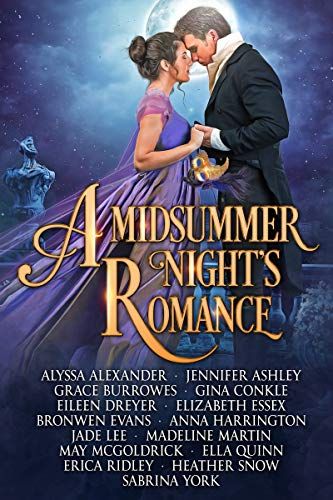
Enter historical romance novelist Eileen Dryer, who will be contributing a novella to A Midsummer Night’s Romance (May 2021). She had “English Monarchs” as her Final Jeopardy! category on her 2014 appearance. The answer was, in her recollection, “the name of two kings, fifth and eighth, who were notable for being king but not crowned.” Knowing they were both Edward was not enough for a win, “but I knew the answer. And I knew it because I read and write historical romance,” Dryer said.
YA author Maggie Lehrman had an unfortunate brush with Final Jeopardy! One of the episodes filmed the same day as hers had “Children’s Authors” as the final category, an absolute gimme for her. When it was her turn on camera, she got stuck with “Historic Ships.” The long-sunk Carpathia, notable for rescuing Titanic passengers, was the historic ship in question. It was too many leagues under the sea for any of the contestants to remember, alas. Lehrman did not manage a win despite having a bit of good luck with a Shakespeare category that was in her bailiwick. Jeopardy! is a game combining skill and luck, no doubt.
Jeopardy! contestant authors being well read will only get them so far, when the frequency of certain topics is examined. The category that appears most frequently in Jeopardy! is sports. So it comes as no surprise that James Holzhauer is among the all-time greats. He not only found a winning strategy in his children’s book reading regimen, but with his career as a professional sports bettor, the show plays into his hand more than most.
Areas of Their Expertise
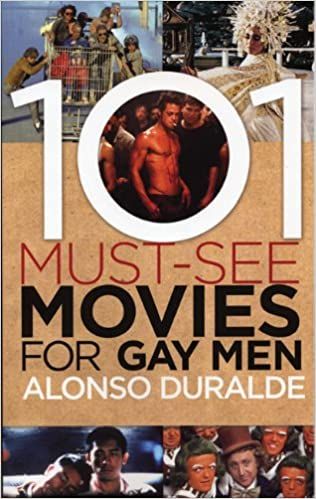
Nonfiction authors make appearances on Jeopardy!, and with their narrower subject expertise, one has to weigh the relative advantages of depth and breath. Alonso Duralde, podcaster and film critic, published his first book, 101 Must-See Movies for Gay Men, five years before his 2010 Jeopardy! appearance. Likewise Andrew Baggarly, a contestant who turned his sports knowledge into a three-win streak in 2012, chronicled the 2010 San Francisco Giants’s journey to the World Series in A Band of Misfits.
Movies and sports, sure, that’s what you might expect trivia wonks to write about. But it gets much, much wonkier among Jeopardy! contestant authors. If you took an introductory philosophy course in college, you may have used The Practice of Philosophy: A Handbook for Beginners, one of the standard texts. It was written by Jay Rosenberg, who won nearly $50,000 on Jeopardy! in 1986 and returned for 2005’s Ultimate Tournament of Champions. He wrote many other philosophical works as well.
Can we go deeper? Oh yes. There’s an old The Onion headline, the kind without a story attached, that I think about a lot. It’s roughly “Harvard Educated Texan Can’t Decide Which to Mention First.” If I were Donald Prothero, I would have this same dilemma, except the decision would be whether to brag about my Jeopardy! appearance or my job as a paleontologist first. He has written a wide range of books, including textbooks on topics like sedimentary geology, but also more accessible works like Abominable Science: The Origin of Yeti, Nessie, and Other Cryptids.
Fiction into Facts
Fiction authors are well represented on Jeopardy!, too, perhaps an argument for a generalist approach to knowledge. Arthur Phillips, the five-time champion, has continued to write novels since Prague, including The Egyptologist and The Tragedy of Arthur. Like paleontologist contestant Prothero, Phillips also returned for the Ultimate Tournament of Champions. Though Phillips writes fiction, history permeates his books. Indeed, someone who’s spent a lot of time with 20th century European history, King Tut, and Shakespeare might be inclined to try his luck at a Daily Double! I still say he needs to add Bruce Springsteen to his diet.
An infectious enthusiasm for knowledge radiates from Olivia Waite’s romances, which might be why they’re among my personal favorites. Her 2019 novel, The Lady’s Guide to Celestial Mechanics, explores both astronomy and embroidery. This year’s release, The Care and Feeding of Waspish Widows, is chock full of details about Regency-era beekeeping and printing. She, too, was a Jeopardy! champion in 2006.
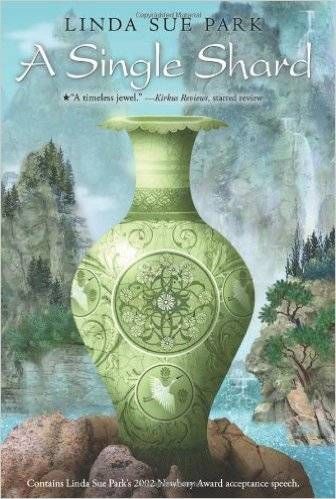
Both Phillips and Waite appeared on Jeopardy! before their books were in print, but that’s not always the case. Take Linda Sue Park, for example. She had already won the Newbery Medal in 2002 for her novel A Single Shard before she competed on Jeopardy! in 2006. Jeopardy! is no stranger to having experts on the show, as we’ve established, but it’s not easy to find contestants who have been awarded what is arguably the highest honor in their field.
Also among fiction-writing Jeopardy! contestant authors is Tui T. Sutherland, perhaps the most prolific of the bunch. She was a two-time champion in 2009. Her Jeopardy! days predate her wildly popular Wings of Fire series; however she had already joined the team writing the even more wildly popular Warriors series under the pen name Erin Hunter.
Ken Jennings, the GOAT
One can’t really talk about Jeopardy! without talking about Ken Jennings, who was recently officially deemed the game show’s Greatest of All Time. When Ken Jennings first competed on Jeopardy!, he was a software engineer—that’s the second most lucrative occupation for Jeopardy! contestants, by the way, following administrative assistant. Now, he seems to wear many professional hats, including that of a professional game show contestant. Author is also undoubtedly among his titles.
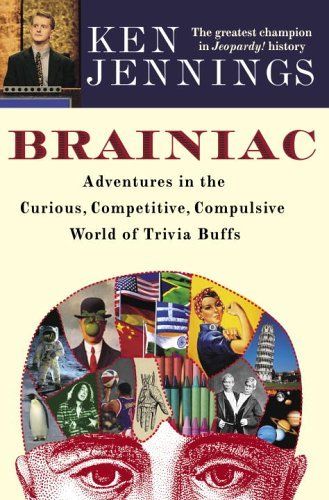
He began his authorial journey with the kind of book seen frequently from game show, competition show, and reality show participants: a behind-the-scenes look. His book Brainiac is part memoir, part cultural exploration, akin to books like Word Freak (about Scrabble) and Thinking Inside the Box (about crossword puzzles). He followed that book up with Maphead, peering into the world of geography and cartography obsessives. He has also branched into children’s literature, with his series Junior Genius Guides, and more general humor books, like Planet Funny.
A cynic might point out that anyone who gets as instantaneously famous as Ken Jennings could get a book deal, but Jennings has set himself apart by maintaining momentum. Another person who rocketed from obscurity into televised omnipresence is Richard Hatch, winner of the first season of Survivor. I went to a watch party for that finale, having never seen one minute of the show. It was that kind of thing. Surely a book deal came out of that, I thought to myself. It did indeed, but he failed to turn that $500,000 offer into an actual book. Ken Jennings has also managed to keep his nose clean compared to Hatch, who has served multiple sentences for tax evasion.

Is There a Jeopardy! Effect?
Does an appearance on Jeopardy! open doors? Change lives? Undoubtedly it did for Ken Jennings. Other Jeopardy! contestant authors, like Linda Sue Park, clearly had nothing to prove professionally by the time they appeared on the show. Not to mention that Park lost her match, as two-thirds of contestants do on any given day. When I asked Maggie Lehrman about her appearance and what buzz it generated for her, she said, “there was some excitement on social media when I found out I was going to be on—more so for that than the actual episode.”
Arthur Phillips, when asked the question about Jeopardy!’s effect on his life, answered “My wife and I bought all our grown-up furniture in one fell swoop, after only a few months of marriage. Milk crates and futons out, nice stuff in.” A telling calculation was made by Jeopardy! contestant author John P. Campbell. He appeared on Jeopardy! In 2014 and told the viewing public he’s a self-publishing romance author. Despite people’s clamoring for the pen name he writes under, Campbell declined to provide it. Privacy trumped publicity, he decided. In the end, a Warholian 15 minutes seems to be what the overwhelming majority of contestants get.
Who Gets to be Smart?
Competing on Jeopardy! might be a shorthand for smartness, but when authors are tagged as “smart,” the literary community does not always benefit. Take, for example, the ongoing defense of romance as a legitimate literary genre. I personally believe romance still needs defending, given that my two local independent bookstores feature sections for virtually every genre except romance.
Romance defenders sometimes point to an accomplishment, whether it’s a law degree or a Jeopardy! appearance, to prove a particular author’s intelligence and thereby validate their genre by proxy. Of course there are romance authors who are lawyers and trivia buffs—the genre is vast and should represent a wide swath of society. If, however, the implication is that people without impressive intellectual bona fides cannot write good books, or that the best books in the genre come only from these pedigreed folks, it’s not the compelling argument people think it is. It’s elitist and classist.
The complexity in defining “smart” implies caution against using shortcuts. It’s certainly fine to think of Jeopardy! contestant authors as smart. But it’s also best to think of them as people who’ve honed the specific skills required to be good at Jeopardy! and who experienced some luck tilting questions in their favor. It doesn’t mean they’re also good at writing romance or playing badminton or performing brain surgeries.
Acknowledging Bias
It can be a caring act to point out the problems with something you love, when the desire is to hold it to a high standard. With Jeopardy!, the obvious flaw is the mismatch between the demographics of the United States and the demographics of the show’s contestants. One can certainly make the same complaint about the publishing industry, given the numerous communities underrepresented among traditionally published books.
There have been studies made about the gender disparities in Jeopardy!, claiming that summed up over many seasons, men have earned nearly double what women have. The statistics when it comes to race must be much more grim, though I could find no reliable source of that data. Maya Angelou, frequent Jeopardy! answer, boycotting the show despite her love for it certainly says a lot. Without a quantitative figure to use, I instead refer to more qualitative evidence. To wit, the existence of the long-running Black Jeopardy! skit on Saturday Night Live, which highlights how siloed the regular version is.
If you truly believe in equality, you will agree that one’s ability to quickly recall facts in a high-pressure televised situation should not depend on race, gender, sexuality, religion, etc. I leave out disability, because the show is clearly not designed for people with certain disabilities. Jeopardy! contestants should otherwise look like a random slice of America. The fact that they don’t shows the bias built into the system. The people writing the questions and the people recruiting the contestants have a lot of work to do. There is, of course, the larger work of making sure the broad education that makes for a good Jeopardy! contestant is equally available to everyone. We can’t put all that on Jeopardy!’s shoulders.
Final Jeopardy!
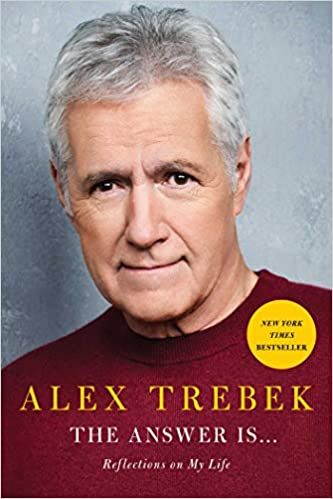
I still love Jeopardy!, I’m still fascinated with people who’ve appeared on it, and I will always root for Jeopardy! contestant authors. I also plan to read Alex Trebeck’s memoir The Answer Is… More accurately, I plan to listen to it, as it’s narrated by both Trebeck himself and Ken Jennings. That seems like a very apt and full-circle celebration of books and Jeopardy! I’ll try not to be overawed. I’ll keep Maggie Lerhman’s down-to-earth conclusion about her appearance on the show in mind. “It was a very fun, once in a lifetime experience. It stings to have lost but the whole trip was definitely worth it. I also have a bunch of gripes about what could have been, but I try to focus on the fun parts!”














